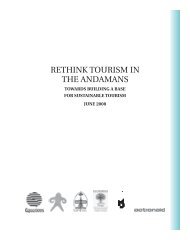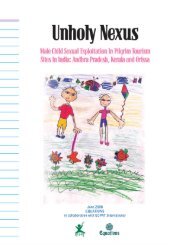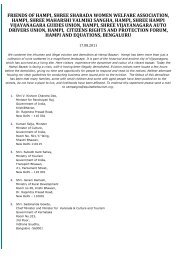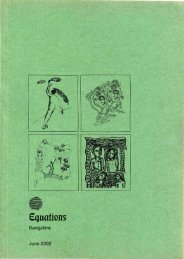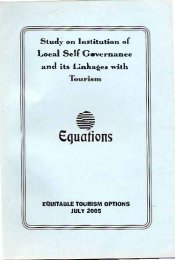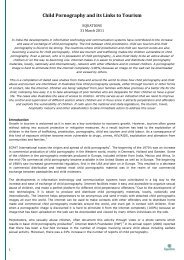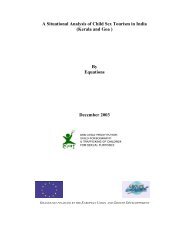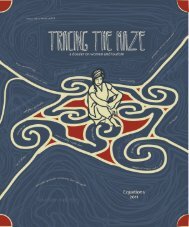Claiming the Right to Say No-30 Nov 09-EQUATIONS - Equitable ...
Claiming the Right to Say No-30 Nov 09-EQUATIONS - Equitable ...
Claiming the Right to Say No-30 Nov 09-EQUATIONS - Equitable ...
You also want an ePaper? Increase the reach of your titles
YUMPU automatically turns print PDFs into web optimized ePapers that Google loves.
<strong>Claiming</strong> <strong>the</strong> <strong>Right</strong> <strong>to</strong> <strong>Say</strong> <strong>No</strong><br />
We cannot deny <strong>the</strong> fact that on account of <strong>to</strong>urism, <strong>the</strong>re is a great influx<br />
of foreign nationals in our state and along with this influx various merits<br />
and demerits has also entered in<strong>to</strong> our state, thus, creating a severe<br />
impact on our lives. And this becomes <strong>the</strong> reason for us <strong>to</strong> not <strong>to</strong> wear an<br />
attitude of indifference <strong>to</strong>wards <strong>the</strong> issue of <strong>to</strong>urism.<br />
Theology has its roots in a divine-human encounter, a face <strong>to</strong> face meeting<br />
of God and people, taking place at <strong>the</strong> inmost centre of our being and in<br />
<strong>the</strong> very heart of <strong>the</strong> world. God also encounters us with challenges in<br />
and through <strong>the</strong> people we meet, <strong>the</strong> events and situations in which we<br />
live. In <strong>the</strong> field of <strong>to</strong>urism industry, God’s challenge resounds in <strong>the</strong> dark<br />
side of <strong>to</strong>urism, which contradicts divine goodness and humanness, <strong>to</strong><br />
which every faithful is called <strong>to</strong> respond with genuine interest. Jesus’<br />
teachings on <strong>the</strong> streets of Palestine, was actually <strong>the</strong> outcome of his<br />
response <strong>to</strong> <strong>the</strong> signs of His times. We see that Jesus also responded <strong>to</strong><br />
<strong>the</strong> concrete his<strong>to</strong>rical situation of His time. In fact, <strong>the</strong> whole of <strong>the</strong> his<strong>to</strong>rical<br />
context came <strong>to</strong> Him as God’s challenge. This can be safely concluded<br />
from <strong>the</strong> text, Lk. 4:17-18, where He reads <strong>the</strong> scroll of Prophet Isaiah in<br />
<strong>the</strong> Synagogue. As such Jesus’ reflection on and responses <strong>to</strong> <strong>the</strong> divine<br />
challenges make up His <strong>the</strong>ology.<br />
By taking human faith, God nei<strong>the</strong>r degraded His divine nature nor human<br />
being, but on <strong>the</strong> contrary raised human kind <strong>to</strong> its dignity.<br />
In this paper, we are trying <strong>to</strong> respond <strong>to</strong> <strong>the</strong> evils of <strong>to</strong>urism in <strong>the</strong> light of<br />
christian faith. In doing so, we are not destroying or degrading <strong>to</strong>urism<br />
but attempting <strong>to</strong> upgrade it, and elevate its standard.<br />
1. The Goan Context<br />
A meaningful response <strong>to</strong> <strong>the</strong> reality of <strong>to</strong>urism demands an understanding<br />
of <strong>the</strong> situation and hence <strong>the</strong> context of <strong>the</strong> people becomes a nonnegotiable<br />
methodological requirement. The Indian context portrayed by<br />
George M. Soares Prabhu S. J. for <strong>the</strong>ologizing process can be of great<br />
importance in understanding <strong>the</strong> Goan context in relation <strong>to</strong> <strong>to</strong>urism. The<br />
“cry for life” summarizes his depiction of <strong>the</strong> Indian context and such a cry<br />
68





